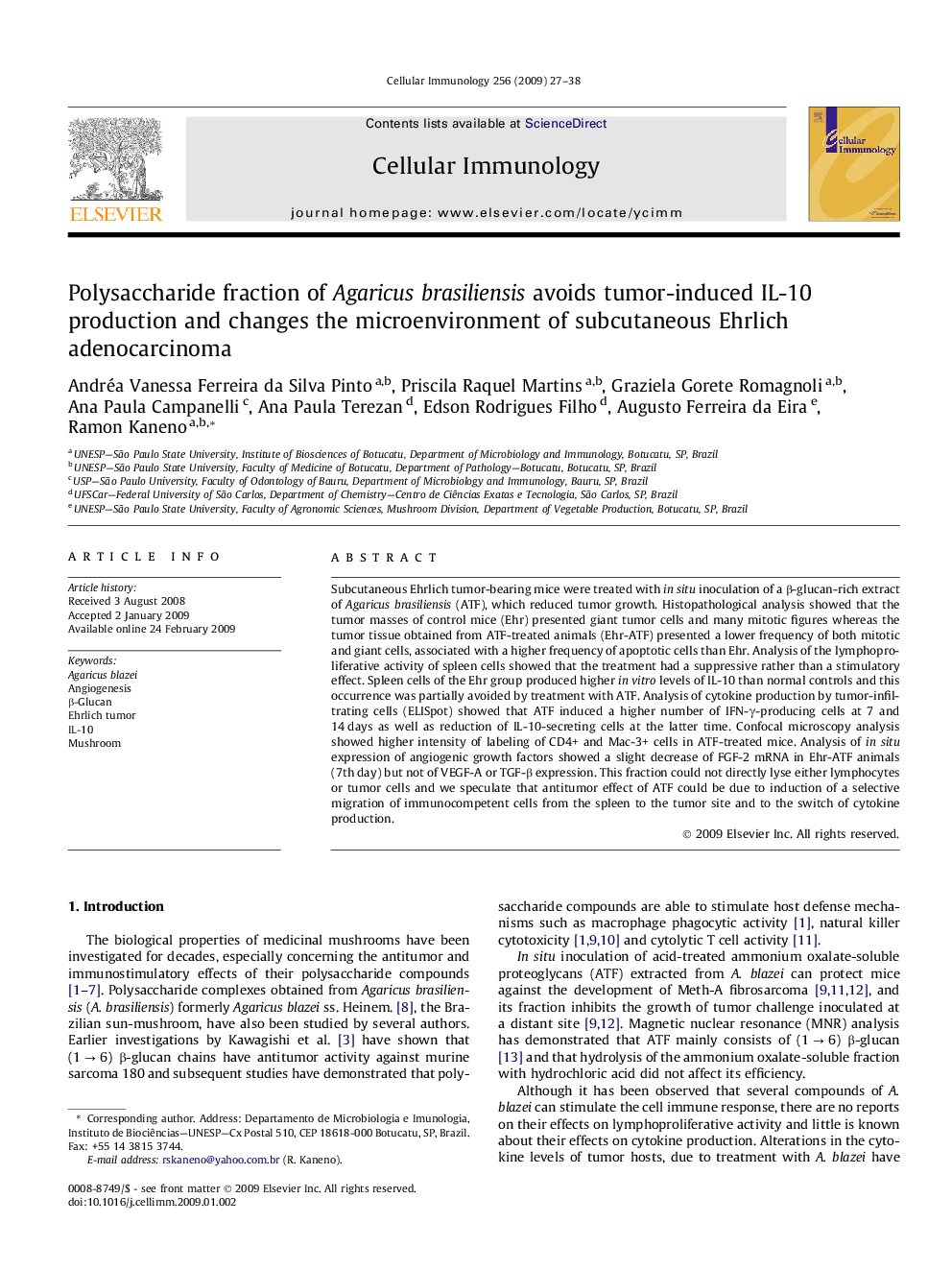| Article ID | Journal | Published Year | Pages | File Type |
|---|---|---|---|---|
| 2167773 | Cellular Immunology | 2009 | 12 Pages |
Subcutaneous Ehrlich tumor-bearing mice were treated with in situ inoculation of a β-glucan-rich extract of Agaricus brasiliensis (ATF), which reduced tumor growth. Histopathological analysis showed that the tumor masses of control mice (Ehr) presented giant tumor cells and many mitotic figures whereas the tumor tissue obtained from ATF-treated animals (Ehr-ATF) presented a lower frequency of both mitotic and giant cells, associated with a higher frequency of apoptotic cells than Ehr. Analysis of the lymphoproliferative activity of spleen cells showed that the treatment had a suppressive rather than a stimulatory effect. Spleen cells of the Ehr group produced higher in vitro levels of IL-10 than normal controls and this occurrence was partially avoided by treatment with ATF. Analysis of cytokine production by tumor-infiltrating cells (ELISpot) showed that ATF induced a higher number of IFN-γ-producing cells at 7 and 14 days as well as reduction of IL-10-secreting cells at the latter time. Confocal microscopy analysis showed higher intensity of labeling of CD4+ and Mac-3+ cells in ATF-treated mice. Analysis of in situ expression of angiogenic growth factors showed a slight decrease of FGF-2 mRNA in Ehr-ATF animals (7th day) but not of VEGF-A or TGF-β expression. This fraction could not directly lyse either lymphocytes or tumor cells and we speculate that antitumor effect of ATF could be due to induction of a selective migration of immunocompetent cells from the spleen to the tumor site and to the switch of cytokine production.
